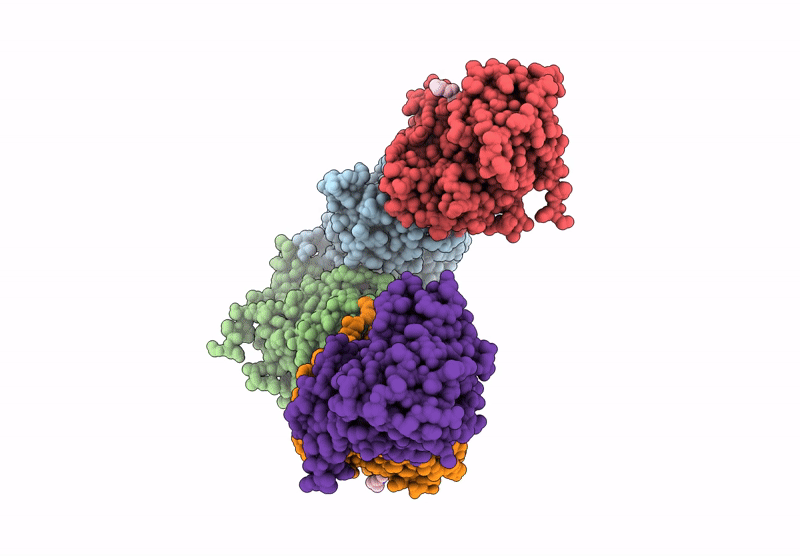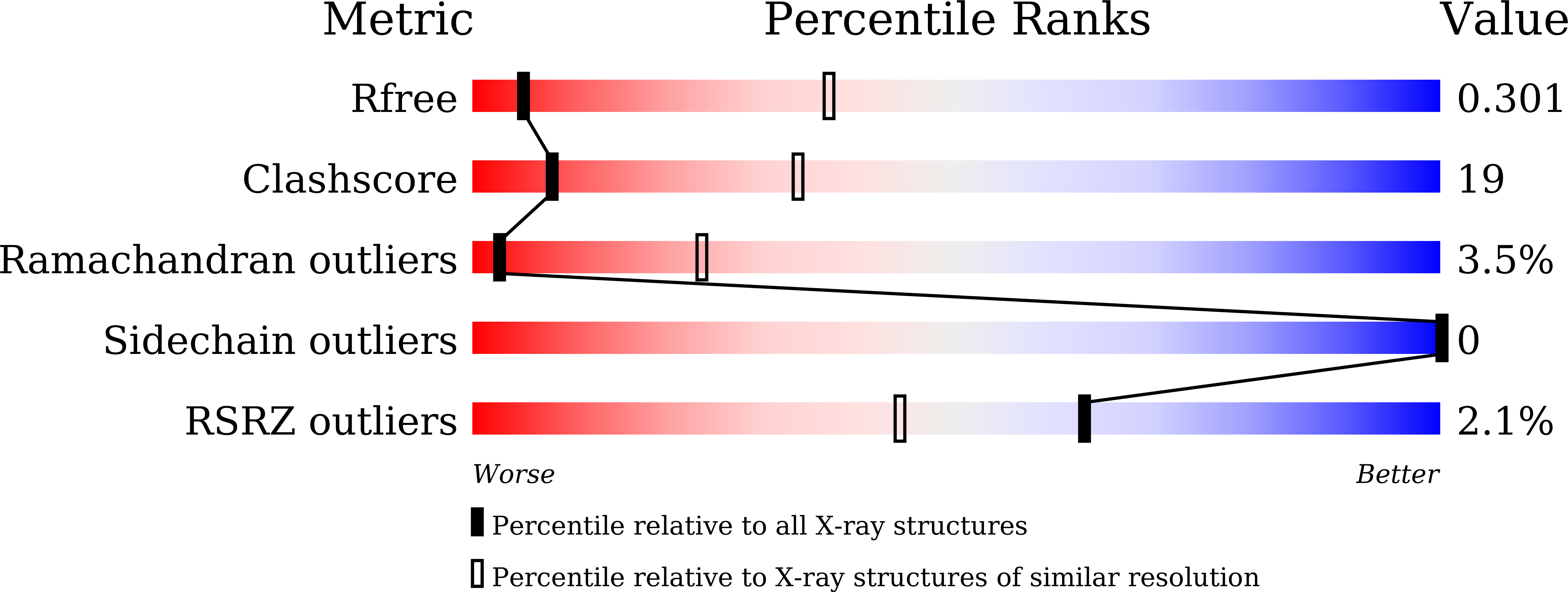
Deposition Date
2025-03-26
Release Date
2025-11-12
Last Version Date
2026-02-18
Entry Detail
PDB ID:
9U8C
Keywords:
Title:
Crystal structure of EGFR exon20 insertion mutant in complex with enozertinib (ORIC-114)
Biological Source:
Source Organism(s):
Homo sapiens (Taxon ID: 9606)
Expression System(s):
Method Details:
Experimental Method:
Resolution:
3.50 Å
R-Value Free:
0.30
R-Value Work:
0.27
R-Value Observed:
0.27
Space Group:
P 21 21 21


